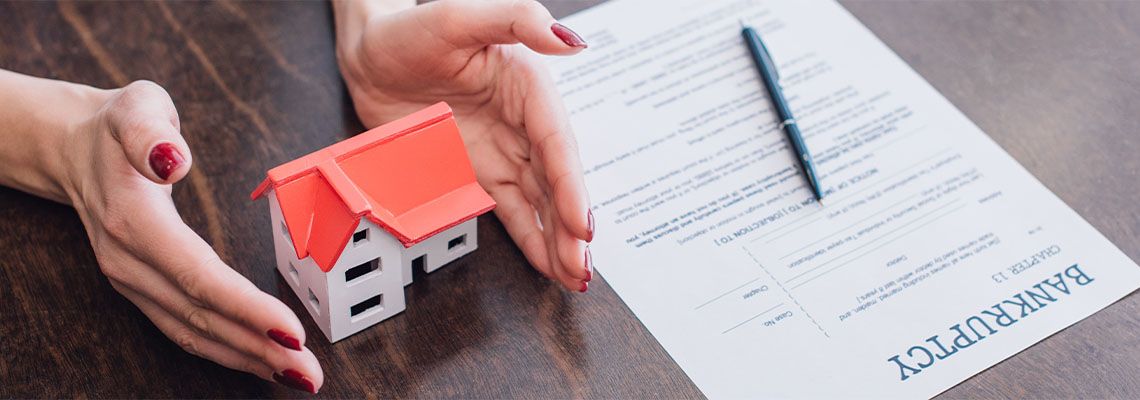
Can Filing for Bankruptcy Stop a Foreclosure?
Buying a home is often the most significant investment we make in our lives. It's not just four walls and a roof, but a place where memories are made, a sanctuary where you feel safe and secure. But life has a way of throwing curveballs like job losses or economic downturns, which can turn the dream of homeownership into a nightmare of foreclosure. If you're behind on payments and facing the risk of losing your home in El Dorado, Arkansas, or surrounding areas, know that you're not alone.
Filing for bankruptcy may seem daunting, but it comes with immediate benefits like an "automatic stay," which puts a stop to all creditor contact and debt collection efforts. Whether you opt for Chapter 13 or Chapter 7, we'll be there every step of the way, helping you navigate through the process and formulate a plan to avoid foreclosure and retain your home.
Understanding Foreclosure
So, why does foreclosure happen? Well, at its simplest, it's what happens when homeowners stop making their mortgage payments. The lender is left out of pocket and needs to recoup that loss. Foreclosure is their way of doing this; they take back the property and sell it off to fulfill the loan obligation.
But it's not just missed payments that can lead to foreclosure. Sometimes, loans are unbundled, meaning that homeowners are personally responsible for taxes and insurance on the property. If these payments fall by the wayside, the lender may initiate foreclosure proceedings. It's crucial for homeowners to understand the implications of their loan agreement and consider their options carefully when facing the prospect of foreclosure.
The Foreclosure Process in Arkansas
Arkansas law recognizes two types of foreclosure: judicial and non-judicial. Judicial foreclosure involves court proceedings, while non-judicial foreclosure doesn't. In the case of non-judicial foreclosure, the sale can be completed almost entirely without the homeowner's involvement, provided they've been properly notified.
There's an important difference between these two processes. In a judicial foreclosure, homeowners have a 'right of redemption'; they get 12 months after the property's sale to buy it back by paying the bid price plus any accumulated interest and fees. However, with non-judicial foreclosure, there's no such right. Once the sale is done, the property belongs to the new buyer.
How Bankruptcy Can Help
When you file for bankruptcy, an automatic stay is issued. This means that all creditors, including your mortgage lender, must stop trying to collect any debt from you. This stay can provide temporary relief and give you some breathing room to discuss options like modification or extension with your lender.
Chapter 13 and Foreclosures
Chapter 13 bankruptcy, also known as "the wage earner's plan," is particularly relevant here. It's designed for homeowners whose income isn't enough to cover their debts, allowing them to propose a repayment plan to their creditors. Under Chapter 13, mortgage lenders must have their claims fully honored. Homeowners work out their disposable income after living expenses (including the mortgage) and pay this amount to their creditors over three to five years. At the end of this period, they can be discharged from all unsecured debts, helping them keep their possessions and avoid liquidation.
However, it's important to remember that while bankruptcy can halt foreclosure temporarily, it's not a permanent solution. Ultimately, you'll still need to find a way to make your mortgage payments. But in the short term, it could provide the breathing space you need to get back on your feet.
In addition, Chapter 13 bankruptcy offers a unique advantage for homeowners who are behind on their mortgage payments. By proposing a repayment plan, individuals can catch up on missed payments over time, avoiding foreclosure and the loss of their home. This option can be especially helpful for those facing temporary financial difficulties but who have a steady income and the ability to meet their obligations in the long run.
Moreover, Chapter 13 bankruptcy allows for the possibility of modifying certain secured debts, such as reducing the interest rate or extending the repayment period. This flexibility can make it easier for homeowners to manage their mortgage payments and regain control over their financial situation.
It's crucial to consult with a bankruptcy attorney to fully understand the implications of filing for bankruptcy and explore all available options. We can provide personalized advice based on your specific circumstances and help you make informed decisions regarding your mortgage and overall financial well-being.
Seek Trusted Legal Counsel
At Rushing Law Firm, PLLC, we're here to support you through this challenging time. We understand the pressures you're facing, and we're committed to helping you explore all your options. If you're struggling with foreclosure and considering bankruptcy, don't hesitate to get in touch.
We're ready to stand by your side, every step of the way. Serving clients in Magnolia, Camden, Crossett, El Dorado, and the counties of Union, Columbia, Ashley, and Ouachita, Arkansas, we're committed to helping you protect your investment and your future.
